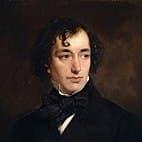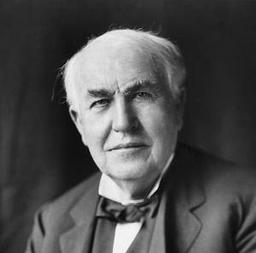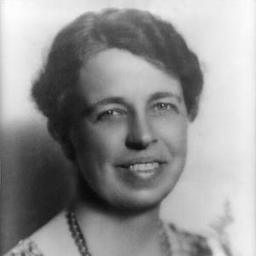146 Quotes
"This is the central assumption of cognitive science and represents an orthodox view within psychology and neuroscience."
— Scott H. Young
The Mind is a Computer"Instead, it is because computer science has discovered that computation is a relatively abstract property, and many completely different physical devices share the same constraints and powers."
— Scott H. Young
The Mind is a Computer"The point isn’t to elide any difference between the digital computers we manufacture and the biological computers we’re born with."
— Scott H. Young
The Mind is a Computer"Instead, it’s to recognize that if you wanted to understand the heart but were somehow philosophically opposed to thinking of it as a kind of pump, you would have a hard time making sense of how it works."
— Scott H. Young
The Mind is a Computer"The brain is massively parallel and interconnected, having as many as a quadrillion synapses."
— Scott H. Young
The Mind is a Computer"Bodies have sensory inputs and motor outputs that interact with our environment."
— Scott H. Young
The Mind is a Computer"Learning, it seems, is optimized for both humans and machines when we succeed around 85% of the time."
— Scott H. Young
The 85% Rule for Learning"For all of these stochastic gradient-descent based learning algorithms, we find that the optimal error rate for training is around 15.87% or, conversely, that the optimal training accuracy is about 85%."
— Scott H. Young
The 85% Rule for Learning"These findings agree closely with the 80% success rate found by Barak Rosenshine in his study of successful classrooms, despite coming from a completely different theoretical background:"
— Scott H. Young
The 85% Rule for Learning"The 85% rule suggests that you should fine-tune the amount of support you use depending on the success rate you’re experiencing."
— Scott H. Young
The 85% Rule for Learning"There are many theories of optimal learning that all point to a sweet spot for difficulty—not too easy, not too hard."
— Scott H. Young
The 85% Rule for Learning"Lev Vygotsky’s zone of proximal development argues that tasks slightly beyond what we can do by ourselves, but can do with assistance from others, maximize learning."
— Scott H. Young
The 85% Rule for Learning"when given a test that required inference or problem solving, the students with higher background knowledge did better than students with less background knowledge when interpreting the less coherent text."
— Scott H. Young
The 85% Rule for Learning"These results fit a model where, if a text mostly says things you easily understand, you don’t invest much effort into creating a mental model of what the text describes."
— Scott H. Young
The 85% Rule for Learning"In those cases, greater difficulty might be beneficial since the struggle it creates forces you to retrieve background knowledge."
— Scott H. Young
The 85% Rule for Learning"Anders Ericsson’s model of deliberate practice argues that when skills become automatic, we plateau at levels of ability far below our potential."
— Scott H. Young
The 85% Rule for Learning"Robert Eisenberg’s theory of learned industriousness suggests difficulty plays a role in motivation as well."
— Scott H. Young
The 85% Rule for Learning"The two groups thus experienced the same success rate, but had very different expectations about the role effort played in success."
— Scott H. Young
The 85% Rule for Learning"Learned industriousness suggests that success on hard problems can be good for us, but failure is demotivating."
— Scott H. Young
The 85% Rule for Learning"Everyone wants advanced knowledge. But it’s typically the basics that matter most."
— Scott H. Young
You’re Never Too Good for the Basics"Most math is arithmetic, not algebra. Running a business is largely a matter of keeping revenues above costs. Good writing is the product of clear ideas and clean sentences."
— Scott H. Young
You’re Never Too Good for the Basics"Mastery of the performance results from mastery of the parts."
— Scott H. Young
You’re Never Too Good for the Basics"We ignore the basics, not because they’re hidden, but because they’re so obvious."
— Scott H. Young
You’re Never Too Good for the Basics"Bringing attention back to the basics doesn’t come automatically. We adjust our habits only when they fail to deliver results."
— Scott H. Young
You’re Never Too Good for the Basics"One way to return to the basics is to change the environment."
— Scott H. Young
You’re Never Too Good for the Basics"Another strategy is to change your goals. When you set a different standard for what you want to produce, your actions must adapt."
— Scott H. Young
You’re Never Too Good for the Basics"Finally, you can find room for improvement by observing and analyzing your work after the fact."
— Scott H. Young
You’re Never Too Good for the Basics"So separate these tasks–examine your mistakes when you’re not in the middle of making them."
— Scott H. Young
You’re Never Too Good for the Basics"Part of the difficulty is that ChatGPT’s human-like conversation abilities can be deceptive."
— Scott H. Young
10 Ways You Can Use ChatGPT to Learn Better"The metacognitive ability to know what you don’t know is underdeveloped in these applications."
— Scott H. Young
10 Ways You Can Use ChatGPT to Learn Better"Simon Willison suggests thinking of LLMs as a “calculator for words”—something that can do useful things with text—rather than as a general-purpose intelligence or smart person."
— Scott H. Young
10 Ways You Can Use ChatGPT to Learn Better"By far, the most common use readers reported was using an LLM as a personal tutor."
— Scott H. Young
10 Ways You Can Use ChatGPT to Learn Better"For instance, when reading a scientific paper you could quickly query the sample size or ask for the methodology or results."
— Scott H. Young
10 Ways You Can Use ChatGPT to Learn Better"5. Rewrite texts at different levels of explanatory depth."
— Scott H. Young
10 Ways You Can Use ChatGPT to Learn Better"One is simply asking an LLM to explain a popular concept in simpler terms, such as: “Explain quantum computing like I’m an eighth-grader.”"
— Scott H. Young
10 Ways You Can Use ChatGPT to Learn Better"The other is to provide ChatGPT with a text or explanation and ask the AI to rewrite it in a more digestible manner."
— Scott H. Young
10 Ways You Can Use ChatGPT to Learn Better"For instance, some readers asked ChatGPT to break down a complex learning goal and give them a curriculum."
— Scott H. Young
10 Ways You Can Use ChatGPT to Learn Better"Others preferred to go even further, asking for ChatGPT to create a studying schedule for them, given their constraints for the day."
— Scott H. Young
10 Ways You Can Use ChatGPT to Learn Better"While skill breakdowns might be alright, ChatGPT still struggles with creating reading lists, confabulating books and references. Thus, while it might do well for decomposing an ambiguous learning task, I wouldn’t trust it to give me good resources (yet)."
— Scott H. Young
10 Ways You Can Use ChatGPT to Learn Better"8. Provide refreshers on forgotten or infrequently used tools."
— Scott H. Young
10 Ways You Can Use ChatGPT to Learn Better"Programmers were the biggest professional group to reply to my query."
— Scott H. Young
10 Ways You Can Use ChatGPT to Learn Better"9. Generate flashcards based on text. (Tentative)"
— Scott H. Young
10 Ways You Can Use ChatGPT to Learn Better"Nonetheless, making flashcards is tedious, so getting a first draft that I later review might speed up the process considerably."
— Scott H. Young
10 Ways You Can Use ChatGPT to Learn Better"10. Use it to organize your notes. (Advanced)"
— Scott H. Young
10 Ways You Can Use ChatGPT to Learn Better"When Wikipedia was released, for instance, “experts” were in an uproar about how the user-generated nature of the website meant it couldn’t ever be relied upon as a source."
— Scott H. Young
10 Ways You Can Use ChatGPT to Learn Better"2. Don’t expect AI to get citations right."
— Scott H. Young
10 Ways You Can Use ChatGPT to Learn Better"3. Don’t expect AI to get the math right."
— Scott H. Young
10 Ways You Can Use ChatGPT to Learn Better"One finding from psychology is that much of reasoning is performed by different subsystems in the brain than those devoted to language."
— Scott H. Young
10 Ways You Can Use ChatGPT to Learn Better"As such, LLMs are really bad at math. And not just higher-level math that humans struggle with."
— Scott H. Young
10 Ways You Can Use ChatGPT to Learn Better"I suspect a major cause of the difficulty is that we readily conflate two different ideas of what it means to “be productive.”"
— Scott H. Young
The Key to Sustainable Productivity"The first is a subjective feeling of productivity. This comes when we’re super busy or exerting extra willpower to focus on our work."
— Scott H. Young
The Key to Sustainable Productivity"The second is the objective output of productivity. This is the actual amount of important work that gets done."
— Scott H. Young
The Key to Sustainable Productivity"In the short term, the subjective and objective views of productivity often coincide."
— Scott H. Young
The Key to Sustainable Productivity"However, in the big picture, subjective and objective views of productivity often have nothing to do with each other."
— Scott H. Young
The Key to Sustainable Productivity"Sustainable Productivity is Invisible Productivity"
— Scott H. Young
The Key to Sustainable Productivity"Sustainable productivity comes from decoupling the short-term feeling of being busy or exerting effort from the long-term investments that allow you to get more work done whether or not you “feel” particularly productive."
— Scott H. Young
The Key to Sustainable Productivity"Knowledge and skills. Whether something is a vexing problem or a trivial task depends on the skills and experience you’ve accumulated."
— Scott H. Young
The Key to Sustainable Productivity"But most important is recognizing that in order to become more productive, you have to worry less about feeling productive and more about creating systems that allow you to get more done—without herculean effort."
— Scott H. Young
The Key to Sustainable Productivity"Pick any author at random, and on average the papers they publish earlier in their career, whether as first author or last author, will be more highly cited and cited by a more diverse group of fields, than a paper they publish later in their career."
— Scott H. Young
Creativity is Productivity"Does the spark of youthful genius burn out quickly, explaining the mediocrity of researchers in their later years? Interestingly, the answer is no:"
— Scott H. Young
Creativity is Productivity"But this is not what Liu and coauthors find! Instead, they find that any paper written, at any stage in your career, has about an equal probability of being your top cited paper!"
— Scott H. Young
Creativity is Productivity"More recently, Dean Simonton has analyzed the creative output of individuals across many domains and suggests an “equal-odds” rule best describes it: once a creative individual starts publishing in a field, each piece of work they produce has roughly equal odds of world-breaking impact."
— Scott H. Young
Creativity is Productivity"Instead, it looks like the most important determinant of creative success is simply how much work you produce."
— Scott H. Young
Creativity is Productivity"Be at a knowledge frontier. You can’t contribute anything new if you’re not at the boundary of knowledge for a discipline."
— Scott H. Young
Creativity is Productivity"Idea generation and public reception are stochastic processes. Once you reach the threshold, further advances have a significant random component."
— Scott H. Young
Creativity is Productivity"The randomness of creative success favors those who are the most prolific. Price’s Law captures this relationship in scientific output, estimating that half of the research of a given discipline will be produced by the square root of the number of researchers."
— Scott H. Young
Creativity is Productivity"Yet perhaps it’s because we’re so uncomfortable likening creativity to a lottery that this perspective is undervalued."
— Scott H. Young
Creativity is Productivity"Over a surprisingly wide range of pursuits, creativity is productivity, and we will have more hits if we take more swings."
— Scott H. Young
Creativity is Productivity"Surprisingly, the answer seems to be that more intensive language education programs do better!"
— Scott H. Young
Learning, Fast and Slow: Do Intensive Learning Projects Work Better Than Slow Ones?"The results from our analyses suggest that concentrating the hours of English instruction in shorter periods of time is more beneficial for the students’ learning than distributing them in many months."
— Scott H. Young
Learning, Fast and Slow: Do Intensive Learning Projects Work Better Than Slow Ones?"1. Spacing makes learning harder, sometimes too hard."
— Scott H. Young
Learning, Fast and Slow: Do Intensive Learning Projects Work Better Than Slow Ones?"However, added complexity can sometimes flip the expected benefit of these desirable difficulties."
— Scott H. Young
Learning, Fast and Slow: Do Intensive Learning Projects Work Better Than Slow Ones?"These results suggest that the optimal studying technique for complex skills changes over time, starting with massed/blocked/review, and shifting to spaced/interleaved/retrieved presentation."
— Scott H. Young
Learning, Fast and Slow: Do Intensive Learning Projects Work Better Than Slow Ones?"2. Spacing of individual items is independent of overall classroom intensiveness."
— Scott H. Young
Learning, Fast and Slow: Do Intensive Learning Projects Work Better Than Slow Ones?"It’s possible that in the time frames studied, individual items of vocabulary and grammar are being spaced out just fine in the intensive programs, so the efficiency gains of the extensive schedule are not observed."
— Scott H. Young
Learning, Fast and Slow: Do Intensive Learning Projects Work Better Than Slow Ones?"3. Intensive classes are more motivating (or attract more motivated students)"
— Scott H. Young
Learning, Fast and Slow: Do Intensive Learning Projects Work Better Than Slow Ones?"In arguing for my intensive language immersion bursts, I similarly relied on a non-cognitive argument."
— Scott H. Young
Learning, Fast and Slow: Do Intensive Learning Projects Work Better Than Slow Ones?"4. Perhaps the tests weren’t delayed enough."
— Scott H. Young
Learning, Fast and Slow: Do Intensive Learning Projects Work Better Than Slow Ones?"A well-known consequence of the spacing effect is that massed presentations tend to be more effective initially, but their advantage typically fades over time."
— Scott H. Young
Learning, Fast and Slow: Do Intensive Learning Projects Work Better Than Slow Ones?"It appears that studies of actual classroom language learning seem to weigh more in favor of the approach I’ve intuitively preferred—working through an intensive burst to get to semi-conversational and then following that with periodic review, rather than studying in twenty-minute daily sessions from the get-go."
— Scott H. Young
Learning, Fast and Slow: Do Intensive Learning Projects Work Better Than Slow Ones?"Spacing for individual items is still central."
— Scott H. Young
Learning, Fast and Slow: Do Intensive Learning Projects Work Better Than Slow Ones?"Intensive projects should be followed by more leisurely maintenance."
— Scott H. Young
Learning, Fast and Slow: Do Intensive Learning Projects Work Better Than Slow Ones?"It also fits with my informal observation that people are much more reluctant to pick up new skills or topics as they get older."
— Scott H. Young
Why Do People (Usually) Learn Less as They Get Older?"This is a worrying trend. Learning is an integral part of the good life, so if forces make it harder (or less desirable) to learn, it seems like it would be helpful to understand them."
— Scott H. Young
Why Do People (Usually) Learn Less as They Get Older?"Theory 1: Opportunity Costs and Investment Horizons"
— Scott H. Young
Why Do People (Usually) Learn Less as They Get Older?"The first explanation is economic: learning is an investment. As you invest in some skills, but not others, you get a greater return from activities where you have considerable training. Thus, your opportunity cost for learning new things increases."
— Scott H. Young
Why Do People (Usually) Learn Less as They Get Older?"Therefore, a failure to learn new things is perfectly rational, even if it can result in inflexibility as we get older."
— Scott H. Young
Why Do People (Usually) Learn Less as They Get Older?"Another way this can occur is if investment in one skill makes time spent on new skills comparatively less attractive."
— Scott H. Young
Why Do People (Usually) Learn Less as They Get Older?"Learning new things takes time. While efficiency can help, the time cost for even well-designed learning may be prohibitive for busy professionals with kids."
— Scott H. Young
Why Do People (Usually) Learn Less as They Get Older?"Theory 3: Older Minds Can’t Learn as Well"
— Scott H. Young
Why Do People (Usually) Learn Less as They Get Older?"There is a grain of truth to this. Fluid intelligence peaks in your early twenties and declines afterward. However, the decline is gradual and minimal. The research I’ve seen seems to indicate that it’s only a serious problem in advanced age."
— Scott H. Young
Why Do People (Usually) Learn Less as They Get Older?"Older people are usually more responsible and organized, which assists in sticking to a project. Also, accumulated knowledge can make learning easier."
— Scott H. Young
Why Do People (Usually) Learn Less as They Get Older?"Reduce the effort for learning. Always carry a book with you."
— Scott H. Young
Why Do People (Usually) Learn Less as They Get Older?"Set aside time for experiments. Straightforward calculus suggests that doing what you’re already good at has the best payoff."
— Scott H. Young
Why Do People (Usually) Learn Less as They Get Older?"Shift your focus away from skills that involve quick wits to those that rely on accumulated knowledge."
— Scott H. Young
Why Do People (Usually) Learn Less as They Get Older?"Above all, however, I think losing interest in learning is a choice. For every trend, there are exceptions. With the right attitude, you can be one of them."
— Scott H. Young
Why Do People (Usually) Learn Less as They Get Older?"Ten well-chosen books are usually enough to understand the expert consensus on any reasonable question you might have."
— Scott H. Young
The Ten-Book Rule for Smarter Thinking"The books have to be well-chosen. Any ten random books on a subject won’t converge to the expert wisdom."
— Scott H. Young
The Ten-Book Rule for Smarter Thinking"Understanding an expert consensus doesn’t make you an expert."
— Scott H. Young
The Ten-Book Rule for Smarter Thinking"There must actually be an expert consensus on the question (or at least, a few dominant viewpoints)."
— Scott H. Young
The Ten-Book Rule for Smarter Thinking"Books with “new” ideas. Most ideas are old, even in supposedly cutting-edge fields."
— Scott H. Young
The Ten-Book Rule for Smarter Thinking"The first difficulty people have with this approach to research is that they pick the wrong books."
— Scott H. Young
The Ten-Book Rule for Smarter Thinking"Canonical texts that the field cites as authoritative."
— Scott H. Young
The Ten-Book Rule for Smarter Thinking"“if I learned as much as an expert, what opinions would I likely form?” The ten-book rule helps you get close to this estimate."
— Scott H. Young
The Ten-Book Rule for Smarter Thinking"Discourse tends to be grounded in a consensus viewpoint."
— Scott H. Young
The Ten-Book Rule for Smarter Thinking"Self-conducted research isn’t without pitfalls."
— Scott H. Young
The Ten-Book Rule for Smarter Thinking"As mentioned above, a major reason people don’t reach the expert consensus after ten books isn’t that their goal was impossible. It’s because they picked the wrong books."
— Scott H. Young
The Ten-Book Rule for Smarter Thinking"Bruce Lee is reported to have said, “I fear not the man who has practiced 10,000 kicks once, but the man who has practiced one kick 10,000 times.”"
— Scott H. Young
Variability, Not Repetition, is the Key to Mastery"Variability plays an essential and oft-neglected role in mastering complex skills. Considerable research shows that practicing in varied contexts with varied methods and performing with varied task constraints results in more robust learning than simple repetition."
— Scott H. Young
Variability, Not Repetition, is the Key to Mastery"Contextual interference improves the transfer of learning to new situations."
— Scott H. Young
Variability, Not Repetition, is the Key to Mastery"Identifying problems correctly and ensuring the correct technique is associated with the problem."
— Scott H. Young
Variability, Not Repetition, is the Key to Mastery"The extra effort needed to retrieve the right response may be desirable."
— Scott H. Young
Variability, Not Repetition, is the Key to Mastery"According to psychologist Robert Bjork’s influential theory of memory, more difficult retrieval results in greater memory strengthening than easier retrieval."
— Scott H. Young
Variability, Not Repetition, is the Key to Mastery"Experts tend to perceive the deep principles of a particular problem. In contrast, novices tend to get distracted by the superficial features."
— Scott H. Young
Variability, Not Repetition, is the Key to Mastery"Some theorists argue that we reason through storing multiple, specific instances of ideas."
— Scott H. Young
Variability, Not Repetition, is the Key to Mastery"A substantial challenge in learning is that the mind economizes on effort. This means we often fall prey to psychological shortcuts that give us the correct answer, even if they won’t benefit us in future situations."
— Scott H. Young
Variability, Not Repetition, is the Key to Mastery"But having multiple methods for getting the right answer is also an important part of mastering complex skills."
— Scott H. Young
Variability, Not Repetition, is the Key to Mastery"Regardless of whether thinking is fundamentally concrete or abstract (or some mixture of both), seeing multiple examples is central to learning."
— Scott H. Young
Variability, Not Repetition, is the Key to Mastery"When variability was low, participants simply memorized the pattern. In contrast, when variability was high, they simulated the trajectory to find the likely destination."
— Scott H. Young
Variability, Not Repetition, is the Key to Mastery"Strategy variability will be highest when we have some, but not a lot, of experience."
— Scott H. Young
Variability, Not Repetition, is the Key to Mastery"Having multiple strategies for solving a problem is vital when you aren’t yet at the level of mastery."
— Scott H. Young
Variability, Not Repetition, is the Key to Mastery"Most research supports the benefits of variability in practice. However, less-variable practice is often better for beginners or lower-performing students."
— Scott H. Young
Variability, Not Repetition, is the Key to Mastery"Having variable methods may also backfire if some of those methods are buggy or flawed."
— Scott H. Young
Variability, Not Repetition, is the Key to Mastery"These two considerations moderate the extreme stance that all variability is good when learning. Instead, we want to see a slow ramp-up in variability."
— Scott H. Young
Variability, Not Repetition, is the Key to Mastery"Choose opportunities with greater variability."
— Scott H. Young
Variability, Not Repetition, is the Key to Mastery"Work with multiple teachers, peers and styles."
— Scott H. Young
Variability, Not Repetition, is the Key to Mastery"Add constraints that force you away from dominant strategies."
— Scott H. Young
Variability, Not Repetition, is the Key to MasteryExplore More Quotes 📚
Want to Save Quotes?
Glasp is a social web highlighter that people can highlight and organize quotes and thoughts from the web, and access other like-minded people’s learning.

















